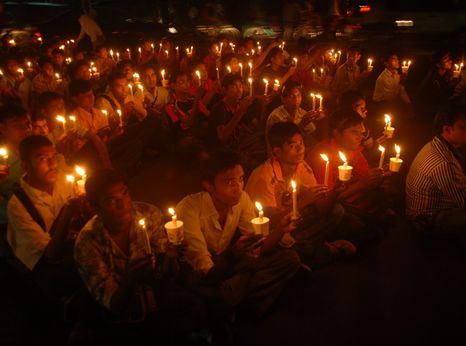Editor feared victim of enforced disappearance

Shafiqul Islam Kajol is a photographer and editor of the Bangla daily newspaper Dainik Pokkhokal. On 10 March 2020, the Bangladesh police registered a case against him and 31 others under the country’s draconian Digital Security Act for publishing “false, offensive and defamatory” information on Facebook. He has not been seen since then.
His family told Amnesty International that it is unusual to not have seen or heard from Shafiqul Islam Kajol for such a long time. Both his phones were switched off after 8:00pm on 10 March. His family fear that he could be a victim of enforced disappearance because of the case that has been filed against him.
The day after, Shafiqul Islam Kajol’s wife informed the local police in Dhaka that he did not come back home and urged them to investigate his whereabouts. The police denied having him in custody, and noted the complaint in a general diary, a document registered by the police.
Bangladesh authorities have an obligation under the Constitution to ensure that “no person shall be deprived of life or personal liberty save in accordance with the law”. Enforced disappearances are a crime under international law, and has attained the status of a peremptory norm of international law (jus cogens).
When reviewing Bangladesh’s initial report on its implementation of the Convention Against Torture, the UN Committee Against Torture regretted that Bangladesh did not provide any information about the status of investigations into allegations of enforced disappearances.
The Committee called on Bangladesh to ratify the International Convention for the Protection of All Persons from Enforced Disappearance.